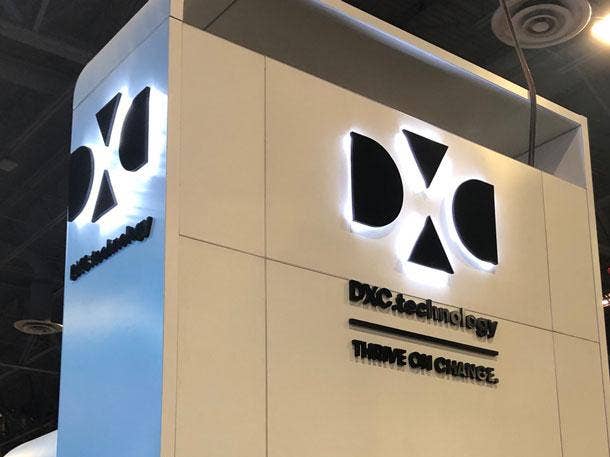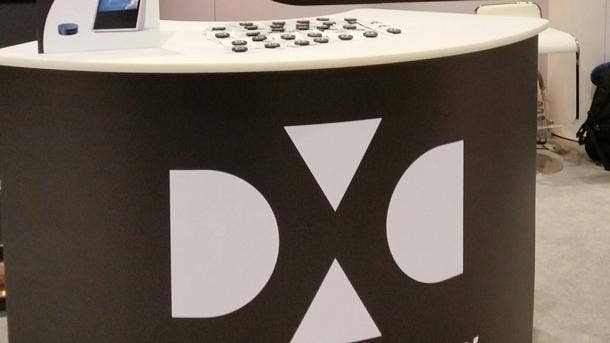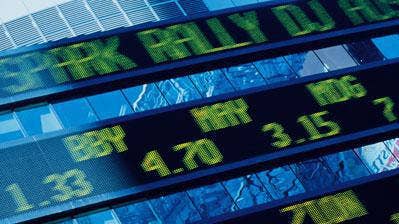5 Things To Know About A Possible Atos-DXC Technology Deal
‘Atos would directly benefit from the market consolidation of a direct competitor, while DXC Technology, which has historically prioritized its fiduciary responsibility, would seize the chance for its shareholders to capitalize on the opportunity and end its seemingly perennial turnaround efforts,’ according to Technology Business Research.

If French solution provider Atos consummates its proposed acquisition of DXC Technology, the combined entity would be the second-largest global IT services vendor, according to a new report today.
The combined company would be closer in size to Accenture and larger than India’s Tata Consultancy Services and IBM Services after the latter’s spin-off of its managed infrastructure services business that’s expected by year’s end, according to Technology Business Research (TBR), an IT, telecom and professional services advisory company based in Hampton, N.H.
“With DXC Technology, Atos would gain scale in the U.S., something the company has been pursuing in fits and starts over the last five years, often through acquisitions as well as changes in leadership in North America,” TBR said in a report today. “Atos could leverage skills in transforming ailing companies such as Siemens IT Solutions and Services and Xerox’s ITO (IT outsourcing) business to swallow a larger competitor that has declining revenues and negative profit margin, particularly given Atos’ experience in successful integrations. Atos would directly benefit from the market consolidation of a direct competitor, while DXC Technology, which has historically prioritized its fiduciary responsibility, would seize the chance for its shareholders to capitalize on the opportunity and end its seemingly perennial turnaround efforts.”
Shares of the troubled, debt-saddled DXC saw a big boost yesterday on news of the unsolicited overture by Atos, with the gains making it one of the biggest moving U.S. stocks.
Atos yesterday acknowledged it proposed a potential “friendly” transaction with DXC that would bring the Tysons, Va.-based B2B IT services firm into its fold and boost Atos’ presence in the United States, where it already generates close to 30 percent of its annual revenue.
Atos and DXC would not confirm the size of the acquisition offer, but Reuters, citing two unnamed sources, put at $10 billion, including debt. DXC’s market capitalization -- which refers to the total dollar market value of its outstanding stock shares and is the most commonly used method of measuring the size of a publicly traded company -- was approximately $6.7 billion when the market closed Wednesday.
Atos has been on an acquisition tear over the last year, acquiring or entering into talks to acquire 12 companies. A DXC acquisition at $10 billion would be its largest after its $3.4 billion to buy Michigan-based IT services provider Syntel in a cash deal in 2018.
A combined Atos-DXC would have North American revenue exceeding an estimated $23 billion and would hold the No. 3 spot on CRN’s Solution Provider 500 list behind No. 1 IBM and No. 2 Accenture. DXC is currently No. 3 on the list, which is ranked by revenue, and Atos is No. 25.
Here’s a look at the proposed Atos-DXC deal, the players, what analysts say about the possible tie-up and the market reaction.

What The Companies Are Saying
Both companies have released scant information about the offer from Bezons, France-based Atos.
“Following recent market rumors about a potential transaction involving Atos, the company confirms that it has approached DXC Technology concerning a potential friendly transaction between the two groups in order to create a digital services leader benefitting from global scale, talent and innovation,” Atos said in a statement yesterday. “In assessing this opportunity, Atos will apply the financial discipline which it has always followed in its acquisition strategy. There can be no certainty at this stage that this approach will result in any agreement or transaction. Further announcement will be made when appropriate.”
Atos declined further comment.
DXC confirmed that it received an “unsolicited, preliminary and non-binding proposal from Atos SE Wednesday night to acquire all DXC Technology shares.”
“The DXC Technology board of directors, consistent with its fiduciary responsibilities, will be evaluating the proposal,” DXC said in a statement. “Prior to receiving this proposal Wednesday night, DXC Technology had no knowledge of any such interest from Atos. We remain focused on delivering for our customers, people and shareholders as we execute our transformation journey.”
DXC had no further comment and declined to say if its board had scheduled a meeting to discuss the offer.

Atos’ Acquisition Spree
Atos, which has 110,000 employees in 73 countries, has been acquiring firms at a rapid pace, buying or entering negotiations to acquire 12 companies in the last year. It’s been using it remaining free cash flow after dividend payments to make “bolt-on” transactions, according to TBR.
The company reported fiscal 2019 group revenue of 11.59 billion euros or $13.72 billion last February, up 1.4 percent and led by its performance in cloud, big data and cybersecurity. Close to 30 percent of that, roughly $4.1 billion, was generated in the United States, CEO Elie Gerard told CRN in a November interview. Approximately 60 percent of its revenue came from Europe, which then included the United Kingdom, and the rest was spread across South America, Africa and the Middle East and the Asia-Pacific region.
Atos has partnerships with the three major public cloud providers -- AWS, Microsoft Azure and Google Cloud. In November, it announced Atos OneCloud, a $2.4 billion, five-year initiative aimed at proactively accelerating its customers’ migrations to the cloud. Girard said the company would invest in increased cloud technical certification for its employees, research and development, hybrid cloud investments and acquisitions.
Atos’ latest acquisition target is Motiv ICT Security, a Netherlands-based cybersecurity company specializing in managed security services and security operation center services. Terms of the deal, which was announced in December and is expected to close in the first quarter, were not disclosed. Atos is the largest managed cybersecurity services provider in Europe and No. 3 globally, according to Gartner.
In December, Atos completed its acquisition of SEC Consult Group, a cybersecurity consulting provider based in Vienna, Austria, and the acquisition of Salesforce Gold Partner Eagle Creek Software Services, an Eden Prairie, Minn.-based technology and management consulting company. It also closed its deal to buy Edifixio, a Levallois-Perret, France-based cloud consulting and integration company that Girard said would strengthen Atos’ position to move from an AWS Advanced Consulting Partner to an AWS Premier Consulting partner.
In October, Atos finalized the acquisition of Reston, Va.-based cybersecurity company Paladion, an artificial intelligence-driven managed detection and response provider with 800-plus employees and cybersecurity experts.
Other acquisitions have included Chicago’s Maven Wave, a business and technology consulting firm specialized in digital transformation solutions for large enterprises and a Google Cloud Premier Partner, last February.
Girard told CRN that Atos was not eying acquisitions because he sees holes in the company’s offerings, but to boost the 10 capabilities that it’s offering under Atos OneCloud in certain geographies.
“I don’t feel at all that we have any hole,” he told CRN in November. “This is exactly why we felt it was the right moment to launch this (Atos OneCloud) initiative. Four or five years ago, I would have answered differently.”

DXC Hurting And Shedding
DXC, meanwhile, has been shedding assets through divestitures. The company was formed in 2017 with the spin-off merger of Hewlett Packard Enterprise’s enterprise services business with Computer Sciences Corp.
DXC has been weighed down by a debt load that was at $9.7 billion, including capitalized leases, at the end of the fiscal 2021 second quarter that ended Sept. 30, 2020. DXC reported $4.55 billion in revenue for that quarter, down from $4.85 billion in the prior-year period. It posted a $246 million net loss -- including pre-tax special items of $265 million in restructuring costs -- down from $2.11 billion in the prior-year quarter.
“We are making good progress on the three key areas of our transformation journey, which are: focus on customers, optimize costs and seize the market,” Mike Salvino, who became DXC’s CEO in September of 2019, said at the time. “We recently closed the sale of our U.S. state and local health and human services business (to Veritas Capital) for $5 billion and paid down $3.5 billion of debt, strengthening our balance sheet.”
DXC is selling its healthcare provider business to Italy’s Dedalus for $525 million in a deal slated to close by March.
On Wednesday, London’s Options Technology, an IT infrastructure provider, said it had an agreement to purchase DXC’s Fixnetix for undisclosed terms. And in late December, Tokyo subsidiary DXC Technology Japan announced support for DXC’s majority-owned Japan Systems to be acquired by a company formed by private equity firm The Longreach Group.
DXC also has been dealing with lawsuits pre-dating its 2017 formation. In November, it agreed to pay $650,000 to settle U.S. Department of Labor pay discrimination charges that it paid female employees in its finance department less than male employees almost 10 years ago, before the Hewlett Packard spin-off.
And in July, the city of New York and a DXC subsidiary agreed to pay $2.77 million to resolve Medicaid fraud allegations in a case dating to 2014 and Computer Sciences Corp. DXC that month also won the dismissal of a lawsuit that alleged its misled investors about its post-merger cost-cutting plans.

What Analysts Are Saying
DXC is worth a lot more to Atos than it is to current DXC shareholders, because “it‘s currently an empty shell,” according to Marty Wolf, founder of Martinwolf Global Advisors, a Scottsdale, Ariz.-based, merger and acquisition firm focusing on the middle-market IT industry.
While a proposed acquisition of DXC is smart for Atos, it also could create opportunities for its competitors, he said.
“It’s cost takeout, and it’s a formula that works, but it’s a distraction from what the eventual goal with the real prize is,” Wolf said. “It creates opportunities for their competitors…while Atos is inwardly focused on integrating a business that’s not right-sized.”
Wolf said the proposed deal reminded him of T. Boone Pickens, a business magnate and financier who was one of his favorite entrepreneurs of all time.
“He was an oil guy,” Wolf said. “When the…price of oil traded so low that the publicly traded oil companies were trading at a discount, he said the cheapest oil you can find is on the floor of the New York Stock Exchange, not in the ground. And in this case, you’re talking about a company (DXC) that...has no meaningful value based on normal market multiples.”
“This is a company that has no earnings, and (Atos) will be able to come in and take out huge amounts of costs -- huge amounts,” Wolf said. “It takes a lot of work.”
While DXC would gain scale in the United States with a purchase of DXC, the company is not the best choice for Atos from a portfolio diversification perspective, according to TBR.
“...Atos’ scale would increase in managed infrastructure services, an area in which it is already well-established,” the report by TBR stated. “However, Atos would gain DXC Technology’s security services and solutions capabilities and add approximately 3,000 people to its more than 5,000 security professionals.”
Atos also would gain scale in digital security, an area of strategic expansion in which it aims to increase its revenues from 700 million euros or $855.5 million in 2019 to 2.1 billion euros or $2.6 billion over the midterm, TBR said.
“If Atos acquires DXC Technology, three years of failed attempts by DXC Technology to turn around eroding revenues and thinning profitability would be forgiven,” TBR stated in its report. “DXC Technology leadership would see a cash-out payday, while remaining assets (people and capabilities) would move to a more stable corporate environment with a long-term view and objective, something Atos is strong at setting up and following through on.”
But the acquisition could present long-term challenges for Atos, according to TBR.
“For Atos’ shift to an industry-aligned, go-to-market approach, gaining additional managed services from DXC Technology -- a company that has not been performing well in the past years -- would not be immediately beneficial and would likely negatively affect Atos’ plans for profitable growth over the next three to four years,” TBR said. “In addition, Atos has a nearly debt-free balance sheet and would need to take on debt to fund the $10 billion transaction, further putting at risk Atos’ long-term strategy if the acquired DXC Technology assets need further investment to streamline and transform into a profitable and growing operation.”
If a deal is finalized, Atos could complete that shift and challenge Accenture, IBM Services, Capgemini and India-centric IT services vendors as a new end-to-end solutions player with strong industry expertise, technology DNA, infrastructure services, cloud and cybersecurity capabilities, and products in security, edge computing, high-performance computing and quantum computing, TBR noted.
“While the new Atos would still have smaller management consulting capabilities compared to Accenture, IBM Services and Capgemini, the company could leverage DXC Technology’s relationship with consulting giant PwC to fill that void and avoid having to buy and integrate expensive consulting assets, while staying in its own lane,” TBR said.
A $15-plus billion ITO business would be the “pearl in Atos’ crown,” according to TBR. While the ITO market is being commoditized, the segment represents about 50 percent of each of company’s performance, it said.
“One can see the potential transaction as if Atos is saying, ‘We are not going to be a management consultancy, but rather the McKinsey & Co. of infrastructure modernization services,’” TBR said. “With cloud-related opportunities front and center of buyers’ agendas, the install base of the new company would be a large chunk of change Atos could tap to drive cloud-related managed services and application transformation opportunities as it layers application services capabilities gained from Syntel and Luxoft.”

How The Markets Reacted
DXC investors welcomed the news of a possible acquisition on Thursday. Its stock was among the biggest movers, jumping as much as 11 percent. After closing at $26.45 on Wednesday, it reached a high of $29.61 before settling at $28.91, up nearly 9 percent.
DXC stock continued to climb Friday, reaching a high of $30.13 before closing at $29.60, up 2.39 percent, giving the company a market capitalization of $7.53 billion.
On Atos’ side, the markets were less enthusiastic. Atos trades on the Paris Euronext Market, where its stock price nosedived more than 13 percent on Thursday to 65.42 euros per share. It rebounded Friday to close at 67.74 euros, up almost 3.5 percent. Its market cap stood at 7.16 billion euros or approximately $8.74 billion.